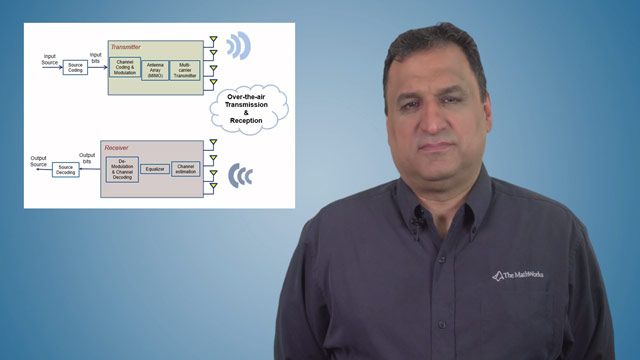Getting Started with Deep Learning for Radar Systems
Overview
Deep learning and machine learning techniques can be applied to a range of radar and wireless applications to meet the increased level of system requirements of operating in a crowded RF spectrum. For example, spectrum sensing, modulation identification, and signal classification are important functions for intelligent RF receivers. These functions have numerous applications in cognitive radar, software-defined radio, and efficient spectrum management. Machine Learning and Deep Learning techniques can be used in these applications to successfully classify radar data including the impacts of the propagation through the environment, RCS characteristics, and micro-Doppler signatures.
We will use real world examples including:
- Radar RCS identification
- Radar/comms waveform modulation classification and occupied spectrum sensing
- Micro-Doppler signatures for target identification
- Synthetic Aperture Radar (SAR) for target classification and recognition
- Anomaly detection for tracking and sensor fusion applications
Highlights
You will learn to:
- Collect data from off-the-shelf radars and software-defined radios to train and test classifiers
- Label I/Q data collected from radars from field testing
- Synthesize data to train Deep Learning and Machine Learning networks for a range of radar and RF systems
- Perform pre-processing and feature extraction help simplify network architectures and improve partitioning options
- Input data and features into networks and configure network architectures for the best performance
About the Presenter
Babak Memarzadeh is a senior product manager at MathWorks focusing on tools that support radar applications. Prior to joining MathWorks, Babak was a principal systems engineer at Geophysical Survey Systems, a ground penetrating radar manufacturing company, where he worked on a wide variety of projects ranging from MIMO radars for real-time 3D subsurface imaging, to localizing ground penetrating radars for autonomous vehicles. Babak received his Ph.D. in electrical and computer engineering from Northeastern University, where his research was focused on electromagnetic metamaterials and metasurfaces for wave manipulation.
Recorded: 21 Jun 2022




